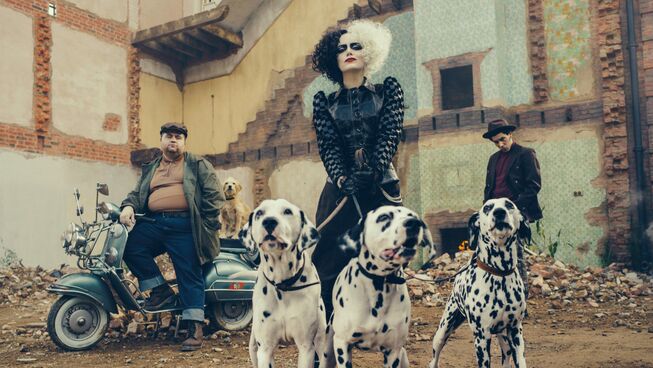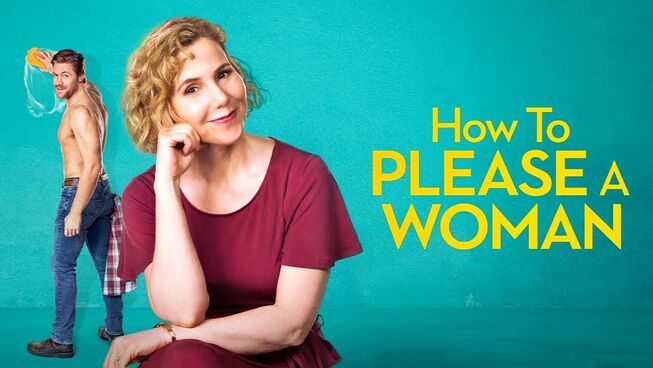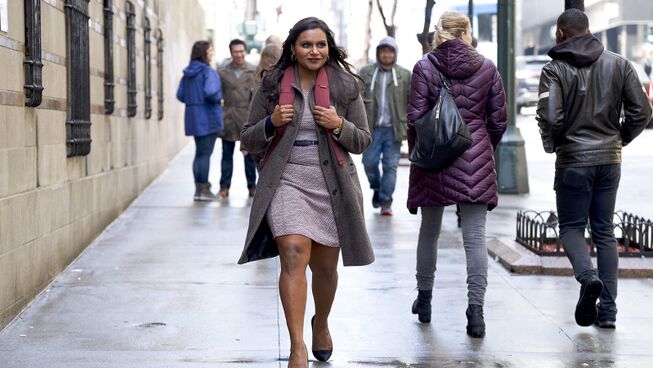Good Luck to You, Leo Grande
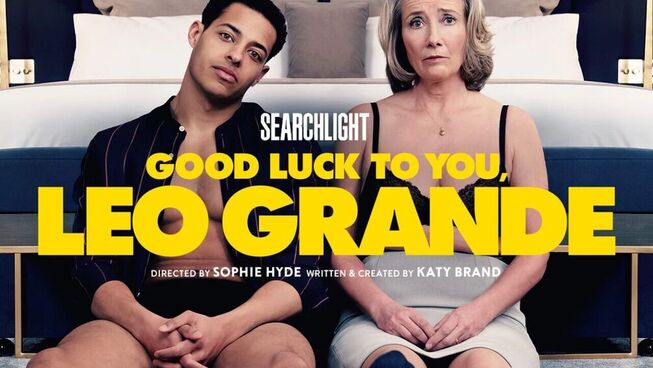
4 out of 5 stars
Determining how to review a film like Good Luck to You, Leo Grande can be problematic in expected and unexpected ways. There are some fascinating discussion points within this film that are worth engaging, but it is all wrapped up in a relationship between a retired widow and a young sex worker. Except to have Academy Award winner Emma Thompson (Cruella) in the lead role alongside the perfectly cast Daryl McCormack (Pixie) as the gigolo makes this even more inviting. Yet, many solutions found in the film do push the boundaries of public discussions within society, which is why this was primarily filmed within one hotel room.
Initially, it seems like a straightforward setup for a romantic comedy that involves a sexual awakening. Still, within moments of the opening scene, audiences will see that this is not a simple tale of fulfilled lust. Nancy Stokes (Thompson) is a Religious Education teacher who has been in a less-than-enviable marriage for over 30 years until her husband passes away unexpectedly. She has determined that sex was less-than-rewarding and now hopes to discover what she suspects she has been missing. A decision that leads her to hire Leo Grande (McCormack) for one night of passion. In this hotel romp, she hopes to release herself from the lifeless and repressive prison of the past three decades of marriage.
(Trailer contains mature content. Do not click on this trailer if the discussion of sex causes offence.)
This movie tears at the fabric of what we do at Reel Dialogue. This film is exceptionally well-written and opens the door to some of the best discussion points on the big screen in recent memory. Katy Brand has written a masterful screenplay that challenges our modern aversion to topics like sexual repression, the viciousness of the ageing process and body image. Australian director Sophie Hyde works her magic with the script and her lead actors' put forward two of the best performances in theatres this year. Yet, the subject matter and less-than-satisfactory answers to massive questions for us all make me pause to recommend this film to anyone besides exceptionally discerning film audiences.
Instead of avoiding this paradox, it might be best to take it head-on and see how things fall out in the end. Please forgive the inclusion of some spoilers as we travel through this review together. Be aware that the film's primary theme has to do with a middle-aged woman hoping to discover something that she assumes she has been missing throughout her marriage. Except in the process, both characters are confronted with their past. As well as the need for them to change as their unexpected relationship takes form. Conversations that expose stifling elements of their lives lead to fascinating, humorous, and confronting dialogue. Even though they will cause those with puritanical leanings to blush as every point tends to be accented with sexual content.
Hidden within the messaging are contemporary leanings of sexuality, while dismissing most Biblical views. There is even a short dissertation on the plight of the legalisation of the career of the sex worker. (The film is based in England) This is balanced with discussions of society’s view of body types and how ageing is ignored by everyone except those over 40. Yet, the deeper discussion concerns the need for human interaction and physical touch. These moments bring out the most endearing aspects of the film and will cause audiences to fall in love with these cast members.
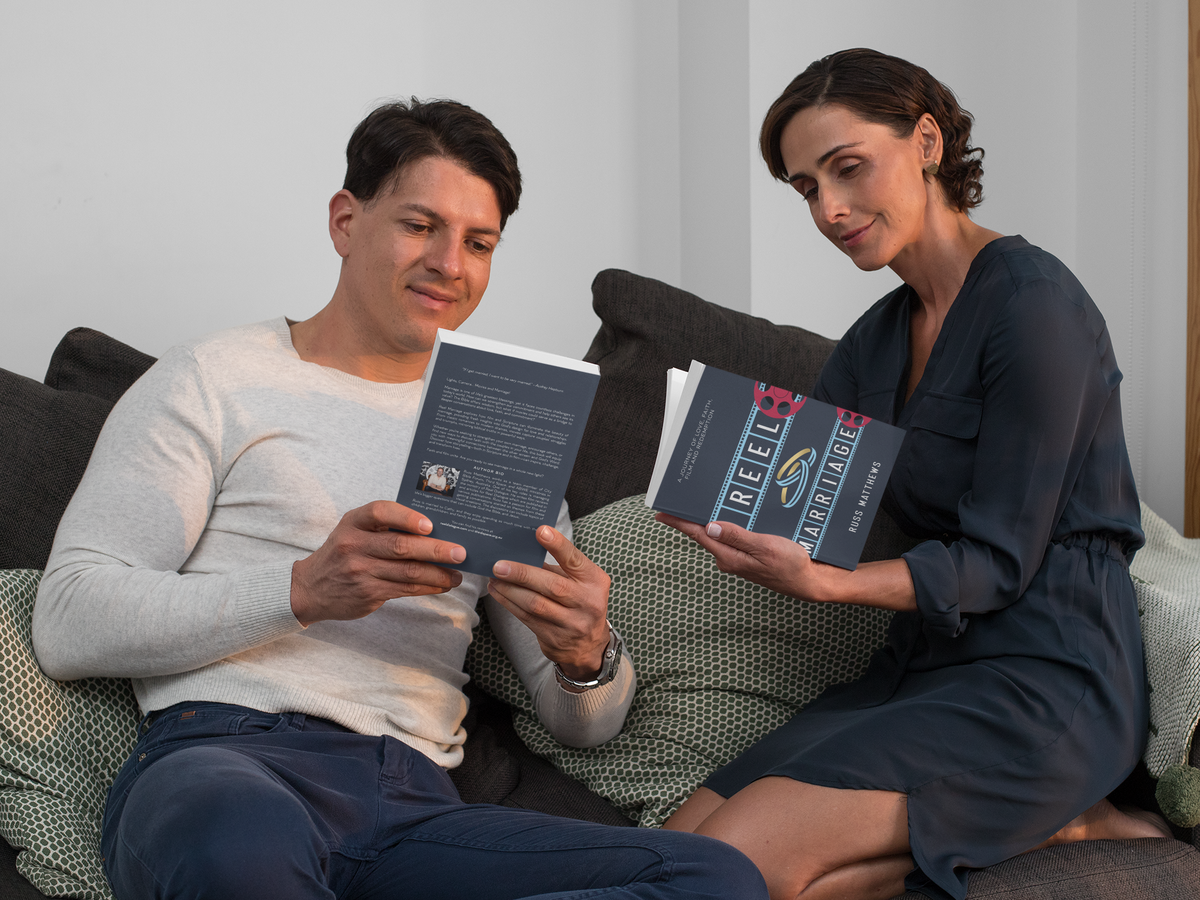
Reel Marriage
Lights, Camera... Movies and Marriage!
Marriage is one of life’s greatest blessings, yet it faces countless challenges in today’s world. How can we strengthen our commitment and help others see its value? The Bible offers wisdom, but what if movies could serve as a bridge to deeper conversations about love, faith, and commitment?
Reel Marriage explores how film and Scripture can illuminate the beauty of marriage, providing fresh insights into God’s design for love and relationships. From classic romances to modern dramas, movies capture couples' struggles and triumphs, mirroring biblical truths in powerful ways.
Faith and film unite. Are you ready to see marriage in a whole new light?
If you order your copy today you will also receive a complementary handbook that is only available with the purchase of the book (Print or ebook)
This leaves me with the question, how do I finish a review of Good Luck to You, Leo Grande? Honestly, this whole experience leaves me torn. Great performances and a marvellously written screenplay partnered with sexually explicit content make this a decision I will leave in our readers' hands. Only go to see this film if this content does not cause you to fail morally and if you attend, be sure to consider some of the more profound questions from this storyline.
Reel Dialogue: Should you watch films like Good Luck to You, Leo Grande?
I have had to address this question in the past as I try not to 'out' myself as a prude, the question that needs to be asked is, "What should we put in front of our eyes for the sake of entertainment?" This film rips open the wound that represents the desire to enjoy something that screams out for moral objection.
Psalm 101:3 says, "I will refuse to look at anything vile and vulgar."
When filmmakers add specific components of writing or imagery for realism or artistic license, there may be an excuse, but where does the accountability come down to the viewer? Should I be putting nudity and crude language before my eyes and into my mind? The answer seems pretty obvious, but how would you answer that question?
Something to consider before seeing Good Luck to You, Leo Grande.


